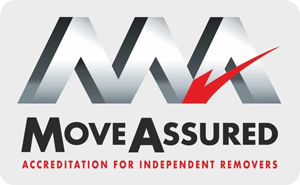Relocating an office is a significant step for any business, often marking a period of growth, change, or new opportunities. However, without careful planning, an office move can lead to disruptions that impact productivity and employee morale.
A well-executed relocation not only minimises these risks but also sets the stage for a smooth transition into a new workspace that can better support the company’s goals.
Understanding the intricacies of an office relocation is crucial to ensuring it proceeds without unnecessary hitches. From logistical challenges to employee communication, each aspect must be handled with precision.
By preparing adequately, businesses can turn what could be a disruptive process into a positive change that boosts efficiency and aligns with their strategic objectives.
Assessing the Need for Relocation
Before diving into the logistics of an office move, it’s essential to thoroughly assess the reasons behind the decision to relocate. Is the move driven by a need for more space, a desire to be closer to clients, or perhaps an opportunity to reduce operational costs?
Understanding the motivation behind the move helps ensure that the new location aligns with the company’s long-term goals, whether that’s expansion, increased client accessibility, or improved employee satisfaction.
Once the need for relocation is clearly defined, it becomes easier to map out the benefits and potential challenges of the move. This step is crucial because it informs other decisions throughout the process, such as budgeting, selecting a new location, and communicating with stakeholders.
A clear understanding of the purpose behind the move ensures that every action taken supports the overall business strategy.

Creating a Detailed Relocation Plan
A successful office move hinges on a well-thought-out relocation plan that outlines every step of the process. This plan should include a detailed timeline, specifying key milestones and deadlines to ensure the move stays on track.
Assigning responsibilities within the team is equally important; designating who will oversee packing, IT setup, and communication ensures that all aspects of the move are covered.
Clear and consistent communication with employees is critical during this stage.
Keeping staff informed about the relocation timeline, what is expected of them, and how the move will impact their daily routines helps to maintain morale and minimise disruption.
Regular updates and an open line of communication can prevent confusion and ensure that everyone is on the same page, making the transition smoother for all involved.

Budgeting and Cost Management
Effective budgeting is essential for controlling costs during an office relocation. Begin by identifying all potential expenses, including moving services, new office setup costs, and any unforeseen contingencies that may arise.
Creating a comprehensive budget allows for better financial planning and helps prevent unexpected costs from derailing the move.
Cost management doesn’t mean cutting corners, though. It’s about finding the balance between quality and cost-effectiveness.
For example, investing in professional movers may seem expensive initially, but their expertise can save time and reduce the risk of damage to equipment, ultimately saving money.
Careful financial planning ensures that the relocation is completed within budget, without compromising on the quality of the move.
Choosing the Right Moving Partner
Selecting a reliable office relocation service is one of the most crucial decisions in the moving process. A professional moving company with experience in office relocations can handle the unique challenges of moving delicate equipment, coordinating large-scale moves, and minimising downtime.
When choosing a moving partner, look for a company with a proven track record in handling office moves and the necessary resources to meet your specific needs.
It’s also essential to consider the level of service provided. Will the moving company assist with packing, labelling, and unpacking? Do they offer storage solutions if the move-in date at the new location is delayed?
These important questions can help you choose a partner who will not only transport your items but also contribute to a seamless transition, ensuring that your business operations can continue with minimal interruption.

Preparing Employees for the Move
Employees are at the heart of any business, and their experience during the move can significantly impact the success of the relocation. Involving them early in the process and keeping them informed about what to expect can alleviate concerns and foster a sense of inclusion.
This might include regular updates, Q&A sessions, and opportunities for employees to voice their concerns or suggestions.
Beyond communication, it’s important to support employees in practical ways as well.
Provide clear instructions on how they should prepare their workspaces, offer assistance where needed, and ensure they have everything required to quickly settle into the new environment.
By prioritising employee well-being and involvement, businesses can ensure a smoother transition and maintain productivity throughout the move.
IT and Equipment Considerations
Relocating IT infrastructure is one of the most complex aspects of an office move, requiring careful planning to avoid significant downtime. Start by conducting a thorough inventory of all equipment and systems, ensuring that everything is correctly labelled and securely packed.
It’s also vital to work closely with IT specialists to plan the setup of technology in the new office, considering factors like internet connectivity, server placement, and network security.
The goal is to have everything up and running as quickly as possible in the new location to minimise disruptions. Testing systems before the move and ensuring that IT staff are on-site during the transition can help address any issues that arise.
A well-planned IT relocation not only prevents delays but also sets up the new office for enhanced productivity and efficiency from day one.

Conclusion
An office relocation is a significant undertaking that, if managed well, can bring numerous benefits to a business.
The advantages are clear from improved facilities and a better location to increased staff morale. However, achieving a seamless transition requires meticulous planning, clear communication, and the right partnerships.
By carefully assessing the need for the move, creating a detailed plan, managing the budget effectively, and involving employees throughout the process, businesses can ensure that the relocation is not just a logistical success but also a positive step forward.
With the right approach, an office move can become a milestone that sets the stage for future growth and success.







